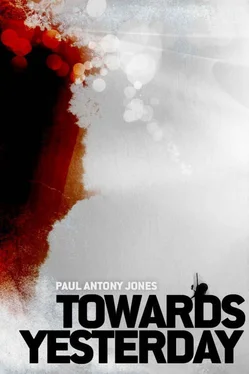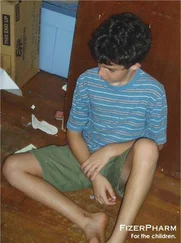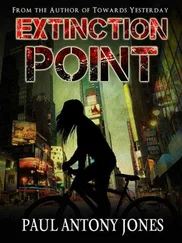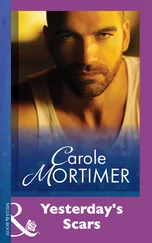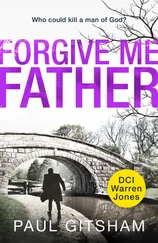While no arrests were made, Police chief John O’Donnell said that the sheer number of devotee’s who turned up to hear Father Pike’s sermon caused traffic problems for the small residential area of Whittier.
Father Pike could not be reached for comment.
Three people stood chatting quietly in a group, as Mina Belkov led Jim into the meeting room. A highly polished cedar conference table occupied the center of the floor with seating for fifteen. At the furthest end of the table from the door, a projector pointed at a blank white screen on the wall. A recording device—Jim presumed—sat on top of the table.
A tall man broke away from the group talking in the corner and moved toward Jim and Mina, his hand extended.
“Welcome, welcome,” he said, grasping Jim’s proffered hand in his own. “It’s a pleasure to finally meet you Jim.”
“Doctor James Baston, this is Doctor Mitchell Lorentz,” said Mina, by way of introduction.
Lorentz was not what Jim had expected. He was tall with long, pure gray hair which was matched by an equally gray mustache and goatee beard, framing lively blue eyes and a mouth that was quick to smile.
“It’s a pleasure to meet you, too, Doctor,” said Jim.
“Let me introduce you to the rest of the team.” Lorentz took Jim by the elbow leading him over to the group who had stopped chatting and now turned to face the two men.
Horatio Mabry insisted Jim call him Harry. Horatio’s name was exceeded in exuberance only by the man’s sheer size—Jim estimated Mabry weighed in at a minimum of two-fifty, probably closer to three-hundred. The man was an absolute bear.
“It’s all relaxed muscle,” Mabry maintained with mock sincerity as he patted his overflowing paunch, a guilty smile lighting up the rubicund face of the man Lorentz described as the team’s resident electrical engineer.
“I keep telling Harry we have a perfectly good gym that he’s free to take advantage of at any time,” said Lorentz with a knowing smile.
“True. True,” the big man retorted. “Unfortunately you also have a wonderful cafeteria. Besides, the one thing we have all learned from the S lip is what our future holds if we continue down the same paths we originally took, and I for one like to know exactly where I am heading.”
“And here,” said Lorentz, turning his attention to the young woman standing quietly next to Mabry, “is another new acquisition to our team. James Baston, I would like you to meet Rebecca Lacey.”
Rebecca was a striking young woman. In her late twenties, with chestnut brown hair falling to her shoulders, highlighting a face that, while not classically beautiful, held an attraction on a level Jim could not immediately grasp. But there was something else about this woman; an intimation of pain that moved across her features like a mist across a morning field, hinting at a hidden hurt that ran deep.
“Rebecca is new to the installation, just as you are, Jim,” continued Lorentz, “and we are hoping she will become a permanent asset to our team.”
If Rebecca had noticed Jim staring she did not let on, instead she smiled politely—a smile that reflected in her emerald green eyes. “I’m very pleased to meet you, Doctor Baston,” said Rebecca, in a voice full of melody.
Jim managed to answer, even though his tongue felt immobile in his head, “A pleasure,” he said. A pleasure? What was he thinking ? It made him sound like a Victorian villain from a bad vid-flick.
“Ah!” exclaimed Lorentz, breaking the spell as he peered over Jim’s right shoulder towards the doorway. “I see the final member of our team has joined us. Come in Professor Drake and meet our newest arrivals.”
Jim turned to greet the new arrival.
A child—no more than six years old—walked into the conference room. Her wispy blonde hair was cut in a bob that outlined a face that would make an angel weep at its sweetness. Sparkling blue eyes assessed Jim Baston with a cool intelligence.
“Hello,” said the girl in a voice little more than a squeak, as she offered Jim her extended hand. “I’m Professor Adrianna Drake.”
* * *
Jim realized his mouth was hanging open. The little girl standing in front of him had a querulous, almost disdainful look on her face. It was a look that said she was more than aware of the effect her childlike appearance had on adults but was well and truly bone-tired of it. Yes, yes , she seemed to say. Just get the gawking over with.
Here was as fine an illustration of the many oddities this new version of an old world had created. For the majority of humanity, the millions of resurrected dead who had suddenly and inexplicably found themselves alive once more had been the hardest aspect of this new-past world to accept. They had collectively been labelled with the politically correct nomenclature of the revivified .
But for Jim, he had the most trouble accepting the other extreme of the scale: the children, who had, until the day of the Slip , been living normal adult lives in the future. After the Slip , anyone in their late-twenties to mid-thirties had found themselves suddenly back in their childhood body, the event having wiped decades from their lives. Now, they were all little again, but their consciousness was still that of their future self. They retained all the intelligence and memories of their adult lives.
Jim found it hard to grasp the fact that the child he saw walking down the street could have, at some point in in the future, held down a job or been somebody’s lover. They had attended school, college. Grown up, married, had perhaps even raised, and now lost, a child of their own. They had experienced everything that differentiates most adults from the child they used to be.
And now, here they were again; trapped in a child’s body, with all of the associated problems that brought. It must have been torturous in those first few months for them.
The exogenous children of the United States handled this most unexpected regression with varying degrees of adjustment. Some tried to make their way on their own, attempting to reacquire jobs they had held when they were adults, but that was difficult because most adults had an ingrained attitude toward children. Jim had read reports in several newspapers of attempts at organizing a child labor union. Others had grabbed eagerly at the chance to be a kid once more; throwing themselves completely into experiencing their childhood over again. Some went back to school (though not many), they played with toys, made friends, climbed trees, scuffed their knees, and enjoyed a second chance at life. Most however just accepted the fact they would have to once more rely upon their parents until they were of a sufficient age where they could step back out into the adult world.
Of course, not all the children were ex-adults; some had died before they left childhood. And it was these kids that Jim had the hardest time accepting. It meant that Lark had also had a second chance at life, only to have it torn from her again. It meant that he , her father, had failed her for a second time. It was a failure that tore at his heart every time he saw a child of Lark’s age.
Professor Adrianna Drake did not fall into any of these categories, Jim thought. He could see intensity behind her eyes, and a drive that was motivated by some source he suspected even she did not truly understand.
“I’m very pleased to meet you Doctor Baston,” the diminutive scientists announced before Jim could say anything.
“Don’t be put off by Adrianna’s… appearance,” Lorentz chimed in. “The professor probably knows more about this project than the entire team put together. If it had not been for her brilliant work we could not have succeeded in our original experiment.”
Читать дальше
